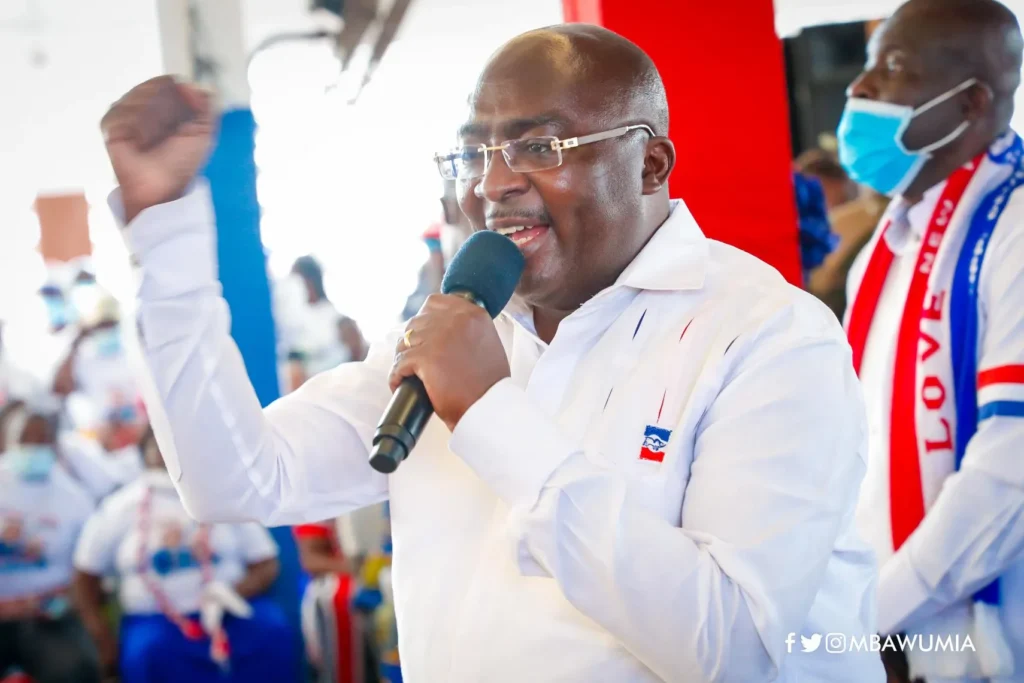Former Vice President Dr. Mahamudu Bawumia has urged members of the New Patriotic Party (NPP) to uphold the party’s unifying tradition of respect for all, and reject the introduction of tribal sentiments in the ongoing internal election campaign against him by some members.
Dr. Bawumia said a national party like the NPP, built on the proud UP tradition of bringing ethnic groups together, should reject what he described as “dangerous and divisive” tribal campaign by some members of the party due to his aspiration to be the party’s 2028 flagbearer.
Dr. Bawumia was reacting to much-maligned attacks against him by Asante Akim South MP, Kwaku Asante Boateng, who has urged delegates not to vote for Bawumia as the party’s 2028 flagbearer because he’s a “stranger” who is not fit to lead the party.
The former Vice President expressed disgust at the MP’s comments and urged members of the party, to reject “such bigotry”.
“Such talks create division and we don’t need it in our party. We don’t need this in Ghana. What we need is unity and respect for all members in our party, so we should all reject such divisive comment,” he said.
“Our tradition is the Danquah-Dombo-Busia tradition, and this is a tradition which was formed by all the main tribes across Ghana. This is the tradition of the NPP,” Dr. Bawumia added, wondering how a member of the party who has served at the highest level for 17 years could be labelled an outsider and unfit to lead.
“Today some of my opponents say I am an outsider and stranger, who does not deserve to lead the party because of where I come. This is dangerous, divisive and contrary to the diversity of our unifying tradition,” he said.
Leading the NPP, Dr. Bawumia noted, should not be about where a member of the party comes from because “any member from any part of the country can lead the party if you are capable”.
“It does not matter whether you are Dagomba, Ga, Dangbe, Sefwi, Ewe, Dagarti, Wala, Bono, Asante, Akyem, Kwahu, Mamprusi, Kusasi, Konkomba, Fante , Frafra, Guan or Gonja, Sisala, Kasena, Kotokoli, Bimoba, Chakosi, etc.”


